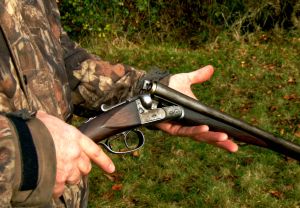 In Commonwealth v. Williams (), the Supreme Judicial Court reversed the denial of the defendant’s motion for post-conviction forensic testing of evidence pursuant to G.L. c.278A on the ground that the statute is applicable to the defendant, who claimed that no crime occurred and, therefore, that he was factually innocent because he shot the victim in self-defense.
In Commonwealth v. Williams (), the Supreme Judicial Court reversed the denial of the defendant’s motion for post-conviction forensic testing of evidence pursuant to G.L. c.278A on the ground that the statute is applicable to the defendant, who claimed that no crime occurred and, therefore, that he was factually innocent because he shot the victim in self-defense.
The background was as follows. The defendant pleaded guilty to manslaughter, but later sought to change his plea. “[He] assert[ed] his innocence, claiming that he acted in self-defense.” He filed a motion pursuant to G.L. c.278A, accompanied by an affidavit alleging “that he grabbed the victim’s wrist when the victim pulled out a gun, and
pushed against the victim, at which time he heard two gunshots in close succession.” The motion “request[ed] that clothing recovered from the victim be tested for traces of gunshot residue and that shell casings recovered at the crime scene be tested for fingerprints. The defendant claimed that forensic testing of this evidence would show that the weapon belonged to the victim and that the defendant shot the victim in self-defense.” The judge denied the motion and the defendant appealed.
In its decision, the SJC stated, “Here, we are concerned with whether a defendant who alleges lawful self-defense (1) is eligible to move for chapter 278A testing in the first instance by asserting factual innocence as required by G.L. c.278A, §2; and (2) is able to provide ‘information demonstrating that the analysis has the potential to result in evidence that is material to [his or her] identification as the perpetrator of the crime in the underlying case’ as required by G.L. c.278A, §3(b)(4).” As to the first of those issues, the Court stated that the statute “defines ‘factually innocent’ as ‘a person convicted of a criminal offense who did not commit that offense.’ G.L. c.278A, §1.” The Court concluded that under the statute, a claim of self-defense “is a claim that the movant is factually innocent of manslaughter.”
As to the second issue set forth above, the SJC concluded that “a defendant who asserts that the requested testing has the potential to result in evidence that is material to his or her identity as the perpetrator of the crime because no crime in fact occurred satisfies the §3(b)(4) requirement. Here, the defendant has satisfied that threshold burden by asserting that he acted in lawful self- defense.” The Court noted that at the next stage of the proceedings (the hearing stage), “the defendant will have to demonstrate by a preponderance of the evidence that the [requested forensic] analysis has the potential to result in evidence that is material to proving that no crime occurred.”
If you or a loved one has been convicted of a crime, you will need an attorney to assess what, if any, post conviction relief is available, and to assess the strength of any such claims. Attorney Daniel Cappetta is well versed in criminal and evidentiary law and leaves no stone unturned in the defense of his clients – no matter what stage of litigation the case is in. Call him for a free consultation today.
 Massachusetts Criminal Lawyer Blog
Massachusetts Criminal Lawyer Blog

